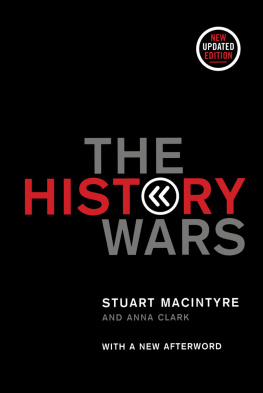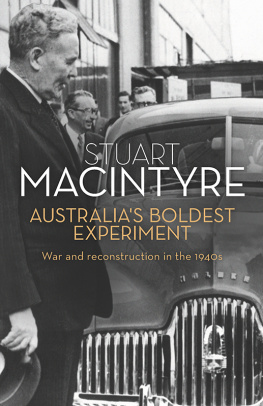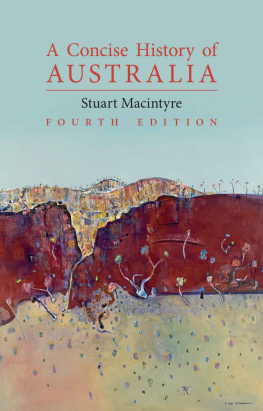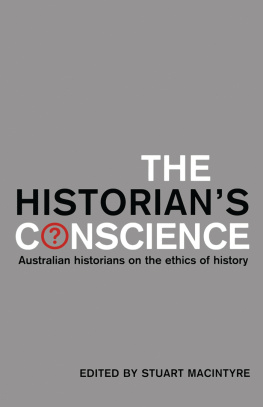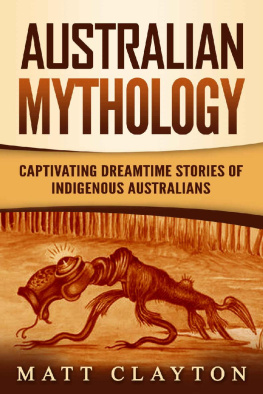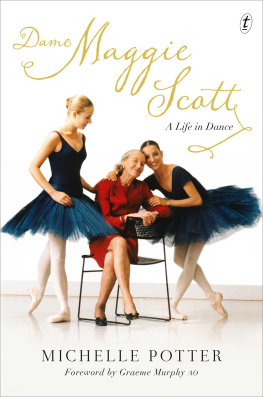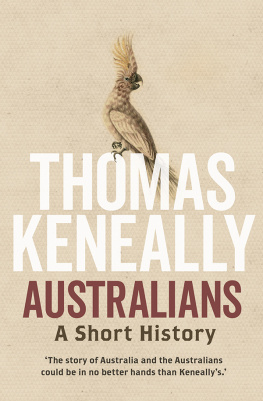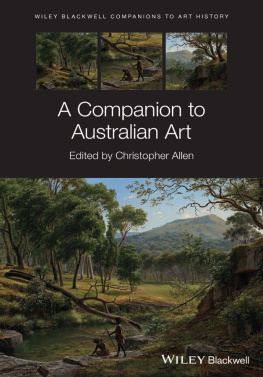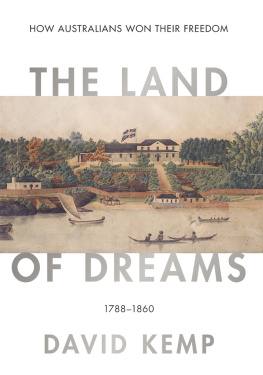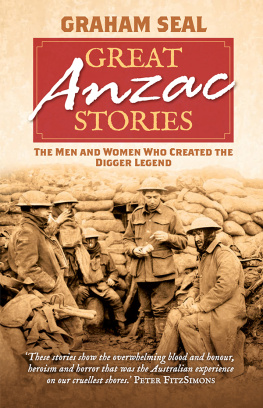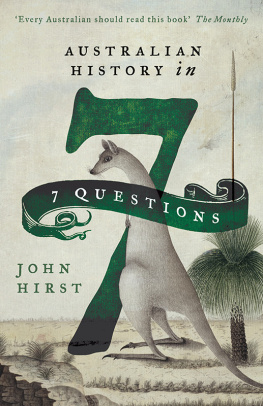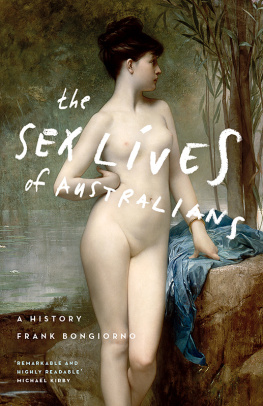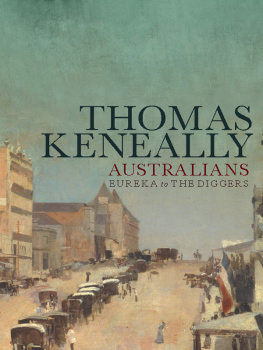A History for a Nation
A History for a Nation
Ernest Scott and the Making of Australian History
Stuart Macintyre
Melbourne University Press 1994
First published 1994
Designed by Judith Summerfeldt
Typeset by Ems Typesetting in 10.5/12.5 Baskerville
Printed in Australia by McPhersons Printing Group for
Melbourne University Press, Carlton, Victoria 3053
Distributed in the U.S.A. and Canada by
International Specialized Book Services, Inc.,
5804 N.E. Hassalo Street, Portland, Oregon 97213-3644
Distributed in the United Kingdom, Europe and Africa by UCL Press Limited,
Gower Street, London WC1E 6BT
The name University College London (UCL) is a registered trade mark used by UCL Press Limited with the consent of the owner.
This book is copyright. Apart from any fair dealing for the purposes of private study, research, criticism or review, as permitted under the Copyright Act, no part may be reproduced by any process without written permission. Enquiries should be made to the publisher.
Stuart Forbes MacIntyre 1994
National Library of Australia Cataloguing-in-Publication entry
Macintyre, Stuart, 1947
A history for a nation : Ernest Scott and the making of Australian history.
Bibliography.
Includes index.
ISBN 0 522 84568 1.
1. Scott, Ernest, 18681939. 2. HistoriansAustraliaBiography. 3. AustraliaHistoriography. I. Title.
994.007202
Publication of this work was made possible by a special publications grant from the University of Melbourne.
Contents
Illustrations
Except where otherwise indicated, all illustrations are from the Scott Papers, National Library of Australia.
Acknowledgements
I have difficulty in recalling just when I became interested in Ernest Scott. When I first read the Short History at school in the early 1960s, his former student R. H. Clayton provided a tangible link to its author. When I directly examined his career for the first time in the early 1970s, Alison Patrick and the late Ding Dyason softened my hasty judgement. And when in 1990 I began to assemble the material for this study I was helped by Dr Wilfred Agar, Harold Attwood, Frank Bongiorno, Ian Britain, Michael Cathcart, Cecily Close, Robert Dare, Jim Davidson (despite his admonition of earnest Scots), Charles Fahey, Barbara Falk, Brian Fletcher, the late W. D. Forsyth, Tom Griffiths, Chris Healy, John Legge, Michael McKernan, General R. R. McNicoll, Race Mathews, Tony Milner, John Mulvaney, Jock Murphy, Margaret Murphy, John Poynter, Graeme Powell, Henry Reynolds, Ron Ridley, John Ritchie, Alan Roberts, Jill Roe, Geoffrey Serle, Paul de Serville, A. G. L. Shaw, Frank Strahan, Martin Sullivan, Kerry Taylor, Julian Thomas, Patricia Witts (General Secretary of the Theosophical Society in Australia) and Ray Wright. The staff of the libraries and archives I consulted were unfailingly helpful. I was assisted by a grant from the Australian Research Council, and by the hospitality and stimulus of the History Department at the University of Otago and the Humanities Research Centre at the Australian National University. The University of Melbourne supported publication. Sarah Brenan was a vigilant and sympathetic editor. Susan Janson helped with research, shared my enthusiasms and in other ways kept a distracted academic functionary up to the mark. Lynne Wrout made those distractions manageable. I thank them all.
Stuart Macintyre
The University of Melbourne
What do we expect from a biography? A true view of the person, his origins, life, achievement, environment. Must answer all reasonable questions about him. Must not shirk the problems about him and his work.
Ernest Scott, Plutarch and the Art of Biography, lecture notes
Introduction
Some time around the middle of this century Australian history, as we now understand it, is deemed to begin. War in the Pacific dispels the last illusions of Pax Britannica; the balance of global power tilts irreversibly away from the British Empire; the last viceroys depart. New trading patterns and strategic needs realign the settler society in the south-west Pacific; changed patterns of material life draw in waves of New Australians. New Australians create a new Australia, one consciously formulated to accommodate and contain diversity within a vigorous national culture. And the nation demands a past that is no longer derivative and dependent, no longer a leaving to make good with what was brought but a coming to start afresh with what is found.
This Australian historiography commences with a prophetic journey into the wilderness in the spring of 1949a journey from the former temporary capital, Melbourne, to the permanent seat of national government, Canberra; from a coastal outpost of European civilization to the high country of the inland where the light is bright and the native grass bleached by the summer sun. The prophet is Manning Clark. He leaves behind the outworn faiths with which earlier intellectuals had comforted themselves, British notions of political liberty, Enlightenment doctrines of secular meliorism, as well as their local reflex, the colonial cringe. He brings with him
The universities are set on a course of expansion that will support the study of Australian history: essential tools of reference are created; postgraduate scholarships and research grants are provided; specialist periodicals flourish; books can be written and published in this country. From 1962 to 1987 the successive volumes of Clarks A History of Australia mark an awakening historical consciousness: at first he tells of explorers and governors haunted by the consequences of their actions; gradually the story expands to acknowledge those on whom they and their successors acted, Aborigines, convicts, failed selectors, the urban poor, women and, still more insistently, Aborigines. More generally in renderings of Australia in book and film, museum and art gallery, the original occupants of this land take on a special significance because of their unbroken continuity with a past of immemorial antiquity. Australia ceases to be a marginal outpost of European civilisation. Its story is now a journey of discovery as the newcomers learn to understand the wisdom of what was here.
But if the discovery of an Australia with its own past only began in the middle of this century, what had gone before? That question is seldom asked today, for we are all familiar with the standard answer: we had no history of our own because imperial disdain induced colonial amnesia. Our culture was derivative, our imagination stultified by an unthinking admiration for everything English. Educational institutions drilled their charges in the achievements of a mother country whose standards could be aspired to but never attained. According to this latter-day gloss on earlier practices, Australian children responded to Boadicea and Arthur, the Norman Conquest and the War of the Roses, the Glorious Revolution and the Industrial Revolution, Drake and Cook, only to fall asleep over an uneventful local postscript that had them tracing the journeys of obscure explorers over trackless wastes and memorising the viceregnal dates of those lilliputian sovereigns, the governors of New South Wales. This
Academic aggrandisement reinforced cultural nationalism. Even as they began to create the new historiography, professional historians sought to distinguish their discipline from what had passed hitherto for historical knowledge. The members of the historical societies that had operated from the beginning of the century were now treated as well-intentioned but parochial antiquarians. Earlier writers on local events were dismissed as mere chroniclers or littrateurs who lacked the capacity to ascertain the truth about the past because they were uncritical in their use pf sources and unscholarly in their interpretations. By 1959, when Professor J.A. La Nauze delivered the presidential address on the study of Australian history to his colleagues gathered as the historical section of the Australian and New Zealand Association for the Advancement of Science, he could use the descriptions academic and professional as if they were synonymous with serious historical scholarship. Some distinguished work, he allowed, was produced outside the universities. If it is professional, however, its conventions, methods of presentation and standards of evidence, are those set in universities.


